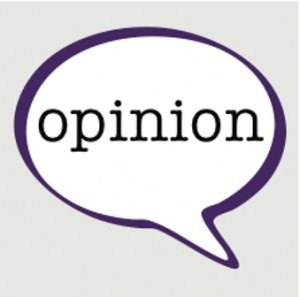If we want our votes to count in the upcoming election, we only have two options: Republican or Democrat. But that doesn’t mean political dialogue should be reduced to this simple dichotomy. In fact, one of the best ways to regain meaningful political dialogue may be to listen more to what nonpartisan groups have to say about politics.
The College Republicans and the College Democrats are the most prominent politically affiliated organizations on campus, but that doesn’t mean they are the only ones with something valuable to say about politics. Organizations not bearing the emblematic elephant or donkey have just as much a right to speak about politics as those that do.
As we approach the midterm elections this November, both parties will try to characterize the other with some blanket generalization.
In reality, the Republicans and Democrats are not nearly as easy to characterize as the campaign ads would like you to think. Each party is more like a funnel for a diversity of groups than a single-minded whole.
To give an example: Merely consider the diversity of reasons why people may support the Republican opposition to Obamacare. Some libertarians have criticized the program for infringing upon property rights. Neo-classical liberal economists have criticized Obamacare for upsetting natural market cycles. Christians have criticized it for forcing employers to fund abortions.
Although these groups rally behind a common cause, we would be greatly mistaken to equate them. Most of what is important in political discussions is what goes on before these groups come together for or against a particular policy.
The background ideology really is more important than a single candidate or law. The underlying philosophy is more important than the overlaying party. The politically unaffiliated organizations (for example, the justice and peace and Catholic studies departments and the Queer-Straight Alliance) really are more important for politics than the overtly political groups.
As Thomas Aquinas says, “a small error in the beginning grows enormous at the end.” The small errors occur, not in College Republicans or Democrats, but in the nonpartisan groups where the political paradigms are erected. By the time issues have reached the two parties, they have become politicized and polarized, leading to the “right versus left” dilemma.
Politically affiliated organizations bring together all the students who support particular bills and candidates. Unaffiliated organizations give students philosophical systems by which to discern which bills or candidates deserve support.
So, if we only listen to the overtly political organizations, not only will we miss the depth and diversity of motivation behind the policies of each party, we will skip the critical step of constructing firm foundations for our political policies.
Elliot Polsky can be reached pols4319@stthomas.edu.


The problem with those who merely spout support for one particular candidate or the other, is that most don’t know why. Only those who delve into the substance of what a political party stands for can answer the “why” question. Political parties have platforms which should describe just what the party stands for, which unfortunately, is not universally true for every party member. However, it is generally a good indicator of just what elected party members will support in proposed legislation, and whether it fits with your beliefs and ethics. It would be wise for students and young voters to investigate just what is contained in those platforms so as not to be categorized in the “uninformed voters” group, of which too many fall into these days.
For instance, the governor’s chosen Lt. Governor as a running mate is a former vice president for the state’s leading performer and promoter of abortion, Planned Parenthood. Guess what he and she stand for and what their priorities are in the Party if elected.